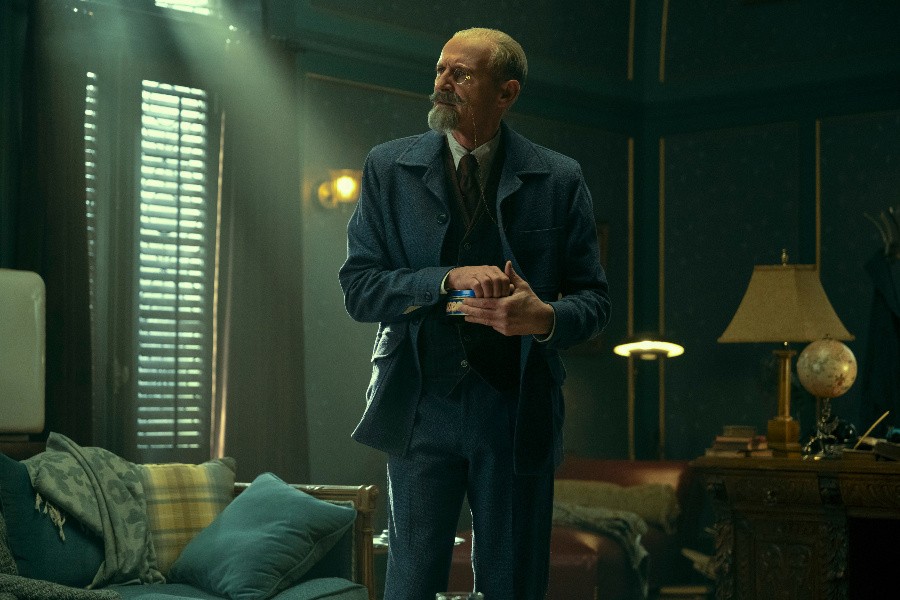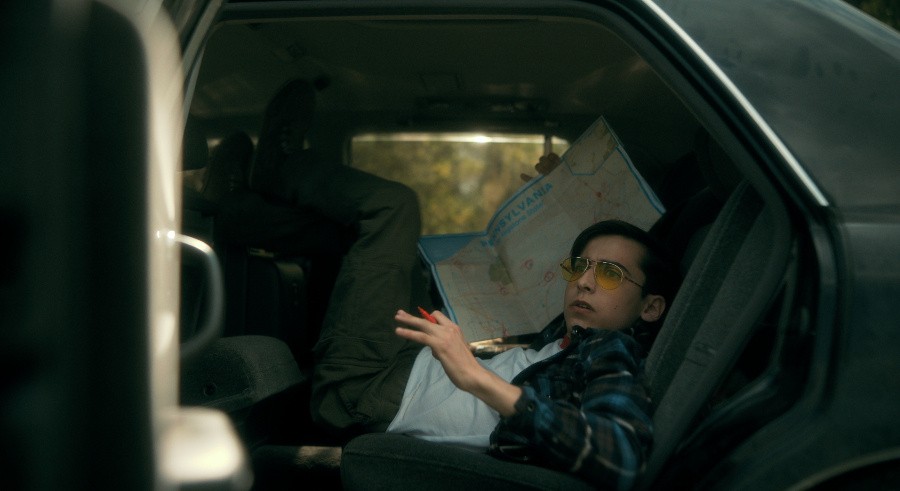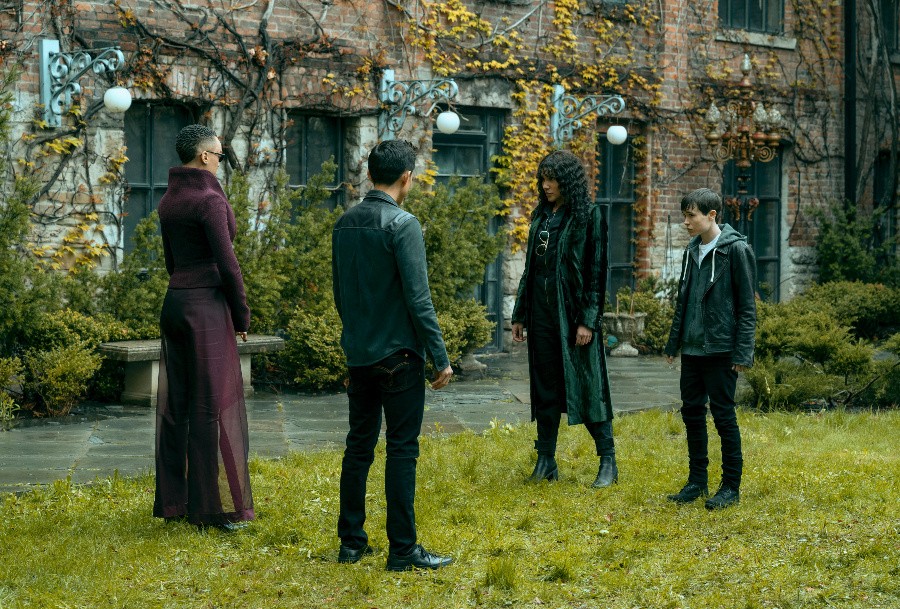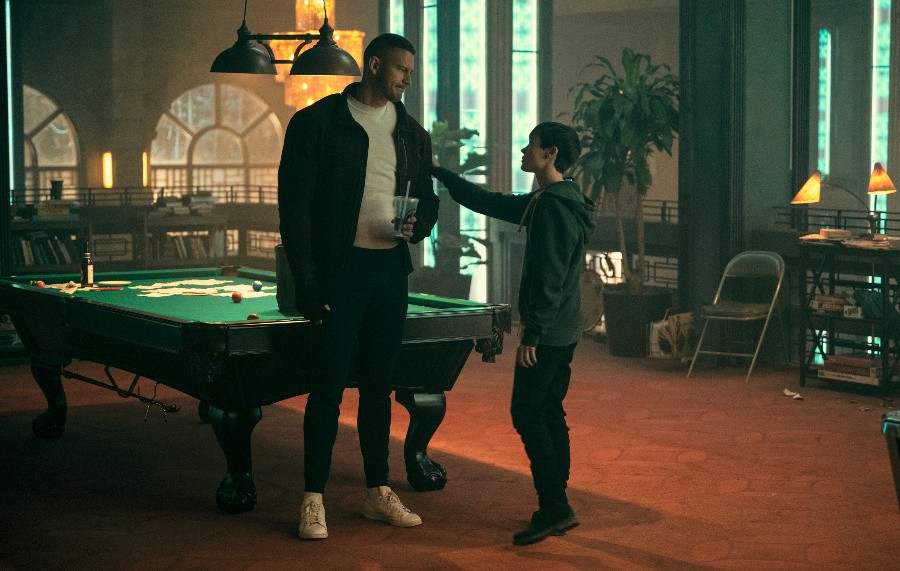Surprising Parallels Between 'The Umbrella Academy' and 'Into The Woods:' Children Will Listen, Just Not The Way You Wish They Would

I made a connection this week which I don't think I ever would have made if not for a pure coincidence of timing.
I just happened to see Into The Woods the Saturday after I finished watching season 3 of The Umbrella Academy, and I was shocked to discover not just one or two, but SEVERAL parallels between the two seemingly unrelated stories.
Reginald Hargreeves is the Witch.

Reginald Hargreeveds made it clear at the end of season 3 that he created the problems they're dealing with today, and he roped all his children in to fix mistakes that he made in his past, sending them on near-impossible missions without telling them why or giving them full context.
The Hargreeves siblings don't have to find a cow, a cape, some hair, and a slipper, but they do have to run around a mirror-dimension hotel completing high-stakes missions without really knowing why, other than "trust me, the world is ending."
And of course, as soon as he gets what he wants, the siblings are suddenly left to their own devices, without the guidance or power they had access to before.
In The Umbrella Academy, it's "Into Oblivion" instead of "Into The Woods."
What was possibly more shocking to learn about Reginald Hargreeves this season is that he apparently does have a heart - it's buried under a legitimately dangerous amount of scientific curiosity and an ego the size of Jupiter, but he does care about his children, and he is proud when they succeed and deeply affected when something happens to one of them (whether he was the one who did it or not.)
Reginald differs from the Witch in that she tried to keep Rapunzel locked in a tower well into her adulthood, while he over-exposed his children to danger at far too young an age - but interestingly, these instincts do come from the same place. Hargreeves had ulterior motives, but it's clear in his training montages with all the children that his goal was always for his children to be as prepared as possible to defeat any evils they came up against in the world - because they've not only seen those evils, they've BEEN them, and they'll be damned if they let someone just like them take out their children.
If Hargreeves is the Witch, then Five is the Narrator.

In Into The Woods, there's a narrator who we don't realize is guiding the story until halfway through, when the characters break the fourth wall, notice him, and decide to just kill him.
Five's siblings don't kill him on purpose - the death of his much older doppelgaanger is purely an accident, and not wholly consequential to the actual story, but it IS symbolic. With the Five who founded the comission dead, the comission is also kind of dead - and so is the illusion that there is anybody with their hand on the wheel steering this timeline.
Like the fairy tale characters in Into The Woods, the Hargreeves siblings may not have liked the story they were in in the original timeline - but at least it was a story that some narrator on the outside (in this case, the Founder version of Five) could make sense of. Without Founder!Five and the comission around, they are wholly unprotected from the chaos of the universe...and their own [often questionable] choices.
But it's 'Your Fault!'

And then you get to the question of throwing around blame, which there is also a great deal of in the Umbrella Academy.
While nobody's actually going round and round singing "but it's your fault!" "no it's your fault!" in season 3, they do come pretty close, playing the blame game with the Sparrow Academy and debating whether they should treat Harlan like a person or a pawn - just as all the other characters debate whether to give Jack over to the giant for revenge after he killed her husband.
It's the exact same moral debate: Can we hand over one of our own for the greater good? Who even counts as "our own?" Can we justify a punishment for a murder committed in self defense? Is there another way out of this?
When you come right down to it, it's just an overcomplicated trolley problem both ways - or, as Five so eloquently calls it, "ethical triage."
So What Does This Mean?
Honestly, I'm not sure, but we seem to be circling around a similar theme: Characters believing they're finally their happily ever after after years of hardship, when in fact the manner in which they got to that happiness is coming back to bite them.
There's the overlapping messages of "I wish" repeated over and over again in Into The Woods, the characters singing about the one thing they need to be happy - and in Umbrella Academy, they're kind of doing the same thing. They're all working towards the greater goal of peace and happiness - the problem is, at first, they're willing to step on each other to get there, and in the process of doing so they make things harder for everyone, including themselves.
People make mistakes
Mothers, fathers
People make mistakes
Holding to their own
Thinking they're alone
The Umbrella Academy and Into the Woods are both about breaking the cycles of abuse we perpetrate against one another, especially from one generation to the next. Oftentimes, parents will hurt their children in the effort of trying to protect them, and never realize it, because they never saw the ways it hurt them. Both stories also stress how things can go so very wrong when we don't honestly communicate with one another - hard as it may seem to do.
As easy as it may seem to just go off on your own and not worry about what everyone else is doing, when EVERYONE decides to do that, your plans will often conflict - Five will take the briefcase everyone else in the Academy is looking for, wasting everyone's time; the Baker will leave his wife behind to protect her despite the fact that she is more than capable of helping.

Both stories also stress how quickly things can go awry when we focus on revenge for the past as a way to get the peace we need, instead of moving forward and trying to forgive; The Umbrellas and The Sparrows waste precious, valuable time, as well as family members' lives, fighting over petty slights instead of working together to try to save the world; the Witch caused a huge mess for everyone when she cursed the Baker's house.
Ultimately, The Umbrella Academy is actually a much darker, grittier, more sci-fi-esque way to express nearly the exact same thing that Into The Woods does:
Careful the things you say / Children will listen
Careful of what you do / Children will see...and learn.
You reap what you sow - the personal flaws we don't fix are passed down to the generation beneath us. If we teach them to be withholding, duplicitous, and vengeful, by being that ourselves, that is what they will become. If we teach them to be complacent and hopeless, then we are all doomed.
The truth is, as Umbrella Academy and Into The Woods would teach us: There is no happily ever after. There is only life, life, and more life - and we have to simply keep going and dealing with problems as they arise.
That may sound like a curse, but these shows both also stress the old cliche "life is what you make of it" in a way that gives that a much deeper meaning: they show that if we are kind, honest, and patient with one another - and with our children - then slowly, slowly, the dream of happily ever after will come just a little closer to our reality.
Both shows, despite their incredible violence, are basically of the same bent:






